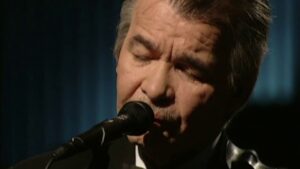While the policies around Medical Assistance in Dying (MAID) are legislated by the federal government, recently two provinces have sought to expand their jurisdiction in the administration of euthanasia. Khunnine/Shutterstock
11/28/2024Updated:11/28/2024
News Analysis
While the policies around Medical Assistance in Dying (MAID) are legislated by the federal government, recently two provinces have stepped into the administration of euthanasia, albeit with different priorities.
The province of Quebec is expanding the procedure further to allow patients to give advance requests for MAID before their medical conditions render them unable to provide consent, arguing that Ottawa has moved too slow on the issue. This technically puts Quebec’s MAID policy in violation of federal law, given that it goes against the Criminal Code’s definition of murder.
Meanwhile, Alberta is launching an online survey to collect feedback from residents on MAID laws amid concerns that the euthanasia regime is being expanded without sufficient oversight. Alberta Premier Danielle Smith’s office said in 2023 that it opposed Ottawa’s plan to extend eligibility for medically assisted death to people whose sole underlying condition is a mental illness. The province’s new online survey will seek to find out whether there is public support for a new public agency and legislation to oversee MAID and decision-dispute mechanisms for families.
While MAID is legislated under the federal Criminal Code, provinces are able to influence their administrations on the procedure, such as by increasing oversight, amending regulatory schemes, and potentially regulating funding, some legal experts say.
“MAID is legislated in Canada through the Criminal Code, so the [federal] government has made the decision that this is an exercise of criminal law, whereas the administration of criminal law is provincial jurisdiction,” Isabel Grant, a professor at the Allard School of Law, told The Epoch Times.
“But provinces also have jurisdiction over health, and so to the extent that we see MAID as part of health, as opposed to criminal law, that also brings in an area of provincial jurisdiction.”
When Canada first legalized MAID in 2016 following a 2015 Supreme Court ruling to allow eligible Canadian adults to request the procedure, it only applied to those who were terminally ill. In 2020, the House of Commons passed Bill C-7, which amended the Criminal Code to allow MAID for Canadians whose natural death is not “reasonably foreseeable.”
While MAID was set to be legislatively expanded further to include those whose sole medical condition is a mental illness, the government announced in December 2022 that this would be delayed until March 2024. In February 2024, Ottawa announced the planned expansion would be further delayed until 2027 to ensure the medical system was ready.
Provincial Jurisdiction
Quebec first adopted a law in June 2023 that allowed MAID requests from individuals with serious and incurable illnesses like Alzheimer’s disease to make advance MAID requests, which took effect on October 2024. Federal Health Minister Mark Holland recently said Ottawa is still “evaluating” the proposal.
Grant, who specializes in criminal law, said this means the province has decided to remove the requirement for consent at the time of death for these types of procedures, which conflict with the federal Criminal Code’s definition of murder. However, Grant said since Ottawa has decided not to react to this decision, “none of this means anything until somebody goes to court and complains about it.”
In arguing for her province’s MAID expansion, Quebec Minister of Health and Seniors Sonia Bélanger, who is in charge of the file, said Quebec has “full jurisdiction to legislate in the area of health care.”
Holland has pointed to the criminal code, saying the law still hasn’t changed. “It is still illegal in this country under the Criminal Code to enact advance requests,” he said on Oct. 28.
However, he added that he can’t direct Quebec prosecutors to enforce the law.
Quebec’s office of criminal prosecution has told prosecutors not to pursue any health professionals who administer MAID in accordance with the provincial legislation allowing advanced euthanasia requests.
Alberta’s Survey
When it comes to Alberta, which launched the online survey to hear opinions on the limitations that should be set on MAID eligibility, Grant said it has “some room” to maneuver on MAID laws, both under health care and the administration of criminal law.
Grant said provincial prosecutorial services can often develop their own policies on how they handle legal issues, such as HIV non-disclosure cases involving the requirement for HIV-positive individuals to disclose their status before engaging in sexual activity. While the Supreme Court of Canada ruled disclosure is required when there’s a “realistic possibility of transmission,” the provinces have taken differing approaches to prosecuting those who fail to do so.
According to Grant, there are some aspects of the Criminal Code that are “obscure,” particularly in relation to MAID. “So I think Alberta could lend some clarity to some of those provisions and some of the safeguards, and to say how they will be applied in Alberta, I think that’s absolutely within provincial jurisdiction to do in this context,” she said.
Grant also said that while the Supreme Court’s landmark Carter vs. Canada decision in 2015 determined that it violated the Charter to criminalize assisted dying for someone who met specified criteria, that does “not mean that there’s a provincial obligation to pay for it.” She said provinces could restrict MAID by only providing funding for it in certain circumstances, but this would also result in “new Charter challenges” arising.
Allison Pejovic, a lawyer with the Justice Centre for Constitutional Freedoms, said while MAID is under federal jurisdiction, the provinces have jurisdiction over the licensing of medical professionals and colleges. She said if a province like Alberta did not want to expand euthanasia, they could amend the colleges’ regulatory schemes to make it a breach of medical ethics to perform MAID in certain circumstances.
“The provinces have control over the licensing of physicians, so they could basically tell doctors, through this regulatory scheme, that if you perform MAID with someone who’s mentally ill, despite what the Criminal Code says, your license could be revoked and you could be fined,” she said.
But the extent to which this would bring legal challenges is also an issue that would remain to be seen.
Pejovic said provinces could also prohibit MAID in provincial hospitals, increase insurance premiums for doctors who perform it, or strengthen oversight over the procedures by ensuring strict adherence to Criminal Code criteria by verifying the patient’s soundness of mind, terminal medical condition, and compliance with required timelines.
Fast-Growing Trend
Canada has among the fastest-growing assisted death rates in the world, with euthanasia deaths growing from 0.38 percent of all deaths in 2016 to 4.18 percent in 2022. Canada’s euthanasia regime has also gained international attention in recent years, with stories of Canadians requesting the procedure to escape poverty and military veterans being offered MAID unprompted.
A government of Ontario report released this year found that those who are low-income are more likely to access euthanasia.
In supporting the request for MAID expansion, Quebec’s Bélanger said it’s something many people have been waiting for.
“It is a real concern for thousands of Quebecers. We must move forward,” she said on social media on Feb. 7.
Heidi Janz, a University of Alberta professor who specializes in disability ethics, said she believes Canada’s MAID legislation creates a “high risk of suicide contagion among disabled people.”
Janz said many disability rights groups opposing MAID have been requesting the creation of MAID-free zones, which would entail designating certain hospitals and clinics as areas where euthanasia cannot be practised. “Such MAID-free zones would serve as safe spaces for people who fear that they will be offered MAID instead of treatment or support,” she told The Epoch Times.
























